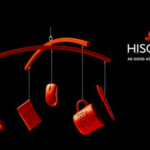Getting into a car accident can be a traumatic, overwhelming experience. You likely have injuries needing treatment, vehicle damage needing repair, and insurance claims needing handling. An experienced attorney becomes essential for getting maximum compensation so you can move forward. This guide provides key tips for finding the best car accident lawyer to secure your interests after a crash.
Why Hiring an Attorney is Crucial
Handling car insurance claims alone puts you at a disadvantage against insurers’ teams of lawyers. Key benefits of retaining counsel include:
- Navigating Complex Laws – Local attorneys understand the intricacies of state negligence, injury, and insurance laws affecting case outcomes.
- Determining Liability – Lawyers investigate crashes to pinpoint all responsible parties and legal avenues for liability.
- Evidence Collection – Attorneys respond immediately to preserve critical evidence like skid marks that later disappears.
- Injury Assessment – Lawyers work with doctors to fully evaluate both immediate and long-term harms demanding compensation.
- Negotiation Leverage – Experienced legal advocates know how to get insurers to pay maximum damages instead of lowball offers.
- Litigation Capability – If needed, lawyers aren’t afraid to file suit and argue cases in court for full value.
With professional legal firepower, victims recover greater compensation while focusing on healing.
Qualities of a Good Car Accident Attorney
Not all lawyers have the skills and commitment to maximize accident claim value. Look for:
- Specialization – Seek attorneys dedicated specifically to auto accident injury cases, not general practitioners dabbling in multiple areas.
- Local experience – Find lawyers intimately familiar with state accident laws, local insurance companies, and court systems where your case would file.
- Resources – Choose firms with ample staff and funds to perform crash investigations, retain experts, and fully litigate cases if needed.
- Negotiation track record – Verify past success securing large settlements for clients both in and out of court.
- Client commitment – Select attorneys known for personal attention, responsiveness, and compassion for injury victims.
- Trial capabilities – Opt for lawyers willing and able to take cases to court when insurers offer insufficient settlements.
Doing research helps identify counsel with optimal skills and resources for car accident injury claims.
Where to Look for Top Attorneys
Cast a wide net using these approaches:
- Referrals – Ask friends, family, coworkers, doctors, and other attorneys for recommendations based on positive personal experience. Referrals often lead to the best lawyers.
- Online Reviews – Websites like Google and Avvo feature ratings and feedback for attorneys from past clients regarding case handling, communication, legal knowledge, and results.
- Bar Association – State bar associations maintain member directories searchable by practice area, experience, and disciplinary history.
- Initial Case Consultations – Take advantage of free initial consultations to gauge multiple lawyers’ commitment, compatibility, track records, and case strategies.
- Specialized Directories – Legal reporting publishers like Thomson Reuters offer attorney directories searchable by expertise profiles and client reviews.
Doing comprehensive research leads to the right attorney fit and provides options if conflicts of interest preclude working with initial choices.
Questions to Ask During Attorney Consultations
The initial case evaluation meeting provides vital opportunity to assess prospective lawyers’ qualifications. Key queries include:
- How many car accident cases have you taken to trial and verdict? More trial experience improves negotiation leverage.
- What verdicts, awards, honors, or other achievements highlight your accident law expertise? Look for distinguished track records.
- What professional memberships or leadership positions do you hold in relevant legal organizations? Leadership indicates respect among peers.
- What personal injury case results have you achieved for recent clients? Verify specific examples of successful past results.
- What unique resources does your firm have to advance auto accident cases? Seek extensive in-house experts, investigators, support staff, and litigation financing.
- How frequently do you communicate case progress updates to clients? Ensure you get prompt status reports.
- How many clients are assigned to individual attorneys? Insist on focused, one-on-one legal service.
The initial meeting provides opportunity to deeply assess legal skill, experience, resources and client rapport. Take advantage by asking lots of questions.
Signs of an Attorney to Avoid
These red flags indicate attorneys unable to maximize claim value:
- Shows disinterest in hearing case details during consultation.
- Rushes to settle quickly with the first insurer offer instead of pursuing full value.
- Fails to discuss litigation strategy if settlement offers seem insufficient.
- Wants to handle case remotely instead of locally where it will get tried.
- Carries an extremely high caseload that inhibits personal attention.
- Can’t provide specific examples of past successful similar cases.
- Pressures signing a fee agreement immediately without allowing time to evaluate options.
- Emphasizes settlement speed over maximum payment amount.
- Doesn’t listen attentively or answer questions thoroughly.
Trust instincts during consultations. Move on if lawyers give off warning signs of being poorly equipped to advance your car accident claim fully.
Steps After Choosing a Lawyer
Once you select counsel:
- Review, negotiate if needed, and sign their detailed fee agreement spelling out contingency percentage and costs. Typical fees range from 30-40% of final settlements.
- Grant written authorization for them to access medical records, employment data, insurance policies, and other pertinent claim information.
- Provide a recorded statement recounting the accident events in detail immediately while facts remain fresh.
- Turn over any evidence already gathered, including accident photos, witness contact information, police reports, etc.
- Follow the attorney’s guidance regarding giving statements to insurers, cooperating with medical exams, and answering questions from adjusters. Silence avoids jeopardizing cases.
- Stick to agreed upon contingency fees throughout the process instead of trying to renegotiate if settlements end up larger than originally expected. A deal is a deal.
Clear communication and allowing full legal control maximizes car accident claim outcomes under counsel’s guidance.
Frequently Asked Questions
Should I hire a lawyer located near me?
Yes, retaining an attorney licensed and experienced in your state ensures familiarity with local laws, courts, judges, and insurance company tendencies. Local knowledge translates to better representation.
How soon after an accident should I engage a lawyer?
Immediately. Early investigation preserves critical evidence and gets maximum compensation. Insurers try to settle quickly for low sums before victims realize full claim value. Delayed legal help forfeits money.
If I was partly at fault for the accident, can a lawyer still help?
Yes. Comparative negligence laws allow recovery of damages proportional to your assigned fault percentage. Skilled lawyers minimize client blame through evidence. Don’t assume you can’t recover.
What resources can help find the best attorney?
Consult bar association referral services, client review websites like Avvo, peer recommendations, free consultation meetings, and lawyer rating publications. Do thorough research.
When do car accident lawyers take payment – now or after settlements?
Lawyers work on contingency, collecting fees only as a percentage of final settlements or court awarded damages. No upfront payment is required. If there is no recovery, you owe nothing.
In The Last
Suffering injuries in a car crash brings daunting legal, medical, and insurance challenges. An experienced attorney levels the playing field and maximizes financial recovery so you can focus on healing. Do diligent research to find counsel matching your situation. Ask smart questions during consultations. Vet qualifications thoroughly. Move promptly to retain representation and provide case evidence. With top legal talent in your corner, you increase the odds of securing the compensation you deserve.










